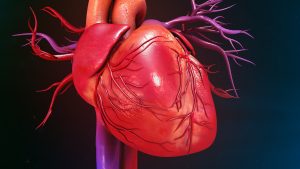Published on May 7, 2019
During the month of May, Grassrootshealth is raising awareness about the importance of the sun for health. While sun exposure, certain foods, and supplements provide the body with vitamin D, there are many vitamin D and non-vitamin D benefits that only the sun can provide.
Vitamin D from the sun and skin health
![]() Whether absorbed through the gut from food or supplements, or produced in the skin from the sun’s UVB rays, vitamin D enters the bloodstream and is transported to the liver where it is converted to 25-hydroxyvitamin D, the form measured in a “vitamin D test,” and then to the kidneys where it is converted to the active form of vitamin D, called calcitriol, which performs many actions throughout the body. However, some cells in the body are also able to locally covert vitamin D to its active form without going to the liver or kidneys. This can happen in keratinocytes in the skin, where active vitamin D regulates the process of replenishing skin with new skin cells to replace cells in the outer layer as they shed over time. This process is necessary to maintain healthy skin. While UV exposure can cause damage to cellular DNA, studies have shown that vitamin D from UVB can decrease DNA damage, prevent cell death, and facilitate DNA repair from UV damage. Sunlight exposure also protects the skin and deeper tissues from UV damage through non-vitamin D processes including increasing skin pigmentation and thickening the outermost layer of the skin.
Whether absorbed through the gut from food or supplements, or produced in the skin from the sun’s UVB rays, vitamin D enters the bloodstream and is transported to the liver where it is converted to 25-hydroxyvitamin D, the form measured in a “vitamin D test,” and then to the kidneys where it is converted to the active form of vitamin D, called calcitriol, which performs many actions throughout the body. However, some cells in the body are also able to locally covert vitamin D to its active form without going to the liver or kidneys. This can happen in keratinocytes in the skin, where active vitamin D regulates the process of replenishing skin with new skin cells to replace cells in the outer layer as they shed over time. This process is necessary to maintain healthy skin. While UV exposure can cause damage to cellular DNA, studies have shown that vitamin D from UVB can decrease DNA damage, prevent cell death, and facilitate DNA repair from UV damage. Sunlight exposure also protects the skin and deeper tissues from UV damage through non-vitamin D processes including increasing skin pigmentation and thickening the outermost layer of the skin.
Release of nitric oxide from the sun’s UVA rays
 One of the primary non-vitamin D benefits of sun exposure is the release of nitric oxide when the skin is exposed to the sun’s UVA rays. Nitric oxide is important for heart health because it increases blood flow and lowers blood pressure. Additionally, nitric oxide plays a key role in immune defense, neurotransmission, and cellular function. Studies have also shown that nitric oxide from UVA exposure has been associated with antimicrobial and anticancer effects, promotion of wound healing, and suppression of factors contributing to the development of metabolic diseases such as weight gain, glucose intolerance, and insulin resistance.
One of the primary non-vitamin D benefits of sun exposure is the release of nitric oxide when the skin is exposed to the sun’s UVA rays. Nitric oxide is important for heart health because it increases blood flow and lowers blood pressure. Additionally, nitric oxide plays a key role in immune defense, neurotransmission, and cellular function. Studies have also shown that nitric oxide from UVA exposure has been associated with antimicrobial and anticancer effects, promotion of wound healing, and suppression of factors contributing to the development of metabolic diseases such as weight gain, glucose intolerance, and insulin resistance.
Increase in serotonin, endorphin, and melatonin levels
 In addition to vitamin D and nitric oxide, sunlight exposure also results in the production of serotonin and beta-endorphins which promote mood enhancement and relaxation, relieve pain, and boost the immune system. Serotonin, a neurotransmitter, is also involved in cognition, sleep, and regulation of eating behavior. Additionally, exposure to sunlight is important for maintaining proper circadian rhythm, which is the approximate 24 hour cycle whereby metabolic processes are synchronized to daily light and dark cycles. Disruptions to the circadian rhythm have been shown to increase the risk of cancer, heart disease, and metabolic conditions. Further, exposure to sunlight during the day increases melatonin levels at night which promotes sleep. Melatonin is also a powerful anti-oxidant and has been shown to have anticancer effects and play a role in regulating blood pressure and glucose levels.
In addition to vitamin D and nitric oxide, sunlight exposure also results in the production of serotonin and beta-endorphins which promote mood enhancement and relaxation, relieve pain, and boost the immune system. Serotonin, a neurotransmitter, is also involved in cognition, sleep, and regulation of eating behavior. Additionally, exposure to sunlight is important for maintaining proper circadian rhythm, which is the approximate 24 hour cycle whereby metabolic processes are synchronized to daily light and dark cycles. Disruptions to the circadian rhythm have been shown to increase the risk of cancer, heart disease, and metabolic conditions. Further, exposure to sunlight during the day increases melatonin levels at night which promotes sleep. Melatonin is also a powerful anti-oxidant and has been shown to have anticancer effects and play a role in regulating blood pressure and glucose levels.
As you can see, sun exposure provides many benefits beyond vitamin D production. Join us throughout May in celebrating the sun and the health benefits it provides by getting outside in the mid-day sun, being mindful not to burn.
Are you using sun exposure as a source of vitamin D?
Is sun exposure helping to improve your vitamin D level? Make sure you know your vitamin D level, and see if you are in the target range of 40-60 ng/ml (100-150 nmol/L). Find out your levels today! Log on to the shop (click the link below) to get your tests and see for yourself if your levels can be improved. Use coupon code SunMonth to receive 15% off during Sunshine Month only!
Make sure you track your results before and after, about every 6 months!
Click Here to Access the Shop Page
How can I track my sun exposure and my vitamin D levels?
To help you track your sun exposure and nutrient levels, GrassrootsHealth has created an online tracking system called myData-myAnswers. You can also track your supplemental and dietary nutrient intake to see how they impact your nutrient levels. Check it out today!







